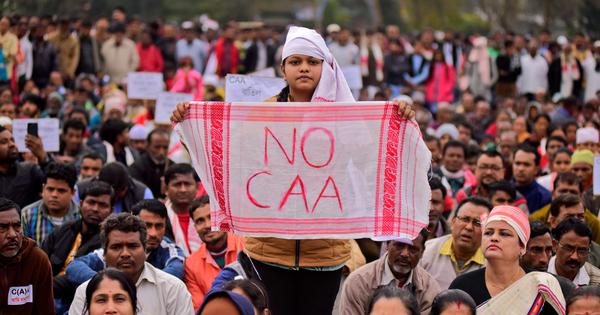On December 11, 2019, Parliament passed amendments to the Citizenship Act that sparked an unprecedented nationwide protest movement against the legislation and other government policies that discriminate against Muslims and violate Constitutional norms. One year later, after riots in Delhi and the Covid-19 pandemic put a halt to public sit-ins, Scroll.in considers the impact of this remarkable moment in Indian history.
Sanjay Biswas lives in Ambagan, a village of mostly Bengali speakers in Middle Assam’s Nagaon district. But his home is in a neighbourhood that is entirely Assamese. For Biswas, a Bengali man who was born and raised in Assam, and is married to an Assamese woman he met at college, it was a detail that was never really part of his consciousness.
But that changed last winter when the Bharatiya Janata Party-led Centre amended India’s citizenship law in the Parliament and Assam erupted in protests. The Citizenship (Amendment) Act made undocumented non-Muslim…
















